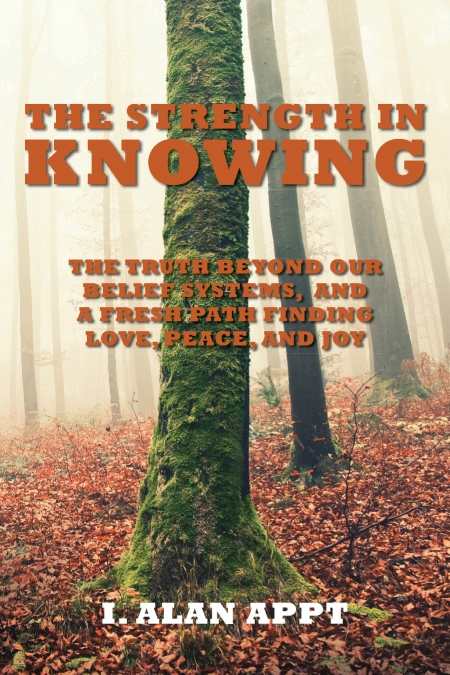The Strength in Knowing
The Truth Beyond Belief Systems and a Fresh Path in Finding Love, Peace, and Joy
What is life all about? This author teaches through more questions and easily understood lessons that encourage higher consciousness.
When I. Alan Appt was a child, he wrote a Hamlet-like, existential poem called “To Be” to express his feelings about the meaning of life and his place in the universe: “To be for me to be is to be. / And to be is being and being / Is to be. Therefore so shall I be.” Later, in his teens and twenties, Appt felt unbearable angst, trying to discover the meaning of life by reading books about existentialism. Once he surrendered his uncertainty and placed it in “God’s hands,” his quest for meaning became easier. A straightforward, easy-to-comprehend, and honest account that comfortably combines science and mysticism, The Strength in Knowing is a culmination of his findings about the meaning of existence.
Each section covers different topics, like love, energy, time, the meaning of spirituality, how to meditate, and different techniques of meditation (silent meditation, meditation that uses mantras and kirtan). “Kirtan practice involves chanting hymns or mantras to the accompaniment of instruments…One of the oldest sacred music traditions on the planet, the kirtan call-and-response chanting method comes to us from India,” he writes. Kirtan is used to bring about energy that assists in producing a “quiet mind,” which is vital in meditation.
The author addresses the purpose of existence and devotes an entire section to why bad things happen to good people and children. In this section, Appt raises many questions. Can a concept like goodness be defined, understood, or appreciated without the concept of evil? Do negative thoughts or negative acts cause more negative thoughts and acts? Can negative vibrations be absorbed by a child in utero, affecting its health, perhaps giving it cancer? His answers to such question are only more questions. It comes down to the subjectivity of what one perceives and believes.
Free of pretense, the author doesn’t set himself apart from his readers like an exploitive guru on a mountaintop. Instead, he teaches through easily understood lessons from his life experience, such as his personal observations and participation in an alternative form of kinesiology that finds truth through muscle testing. He also instructs using religious tenets and philosophical disciplines borrowed from various cultures, studying and modifying them and adding his own ideas.
He uses quotes from intellectuals like Ralph Waldo Emerson and alludes to pop culture, including movie references, to help make a point. For example, he explains that a quote from The International was gleaned from the following quote by French writer, Jean La Fontaine: “A person often meets his destiny on the road he took to avoid it.” To Appt, this quote explains how his book contains his thoughts on existentialism, a topic he tried to stay away from for over four decades.
The Strength in Knowing is similar to Dan Millman’s The Way of the Peaceful Warrior and Norman Vincent Peale’s The Power of Positive Thinking. Appt proposes there is a truth beyond belief systems. However, the effectiveness and relevance of his book and others like it lies in the individual belief system of the reader. Appt is a teacher, spiritual counselor, motivational speaker, and ordained interfaith minister. His secular background and deep forays into spirituality and philosophy have helped him reach for a higher consciousness. He finds meaning and peace from within himself and can still be at peace and function in the “normal” world.” We could learn by his example.
Reviewed by
Lee Gooden
Disclosure: This article is not an endorsement, but a review. The publisher of this book provided free copies of the book and paid a small fee to have their book reviewed by a professional reviewer. Foreword Reviews and Clarion Reviews make no guarantee that the publisher will receive a positive review. Foreword Magazine, Inc. is disclosing this in accordance with the Federal Trade Commission’s 16 CFR, Part 255.

